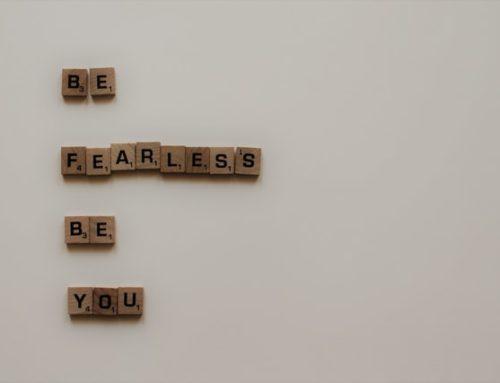Everyone struggles to “just be themselves” in some way, at some time or another. All of us are familiar with the outcomes of trying to fit in. We know what it is to keep our mouths shut when we’d rather speak. Living an authentic life is no simple task. It’s frustrating to mask our true selves, it doesn’t feel good. Most of all, it doesn’t even work.
So, How Can You Live a More Authentic Life?
The first step is to understand the obstacles we have in our lives. What makes us feel like we have to hide our genuine selves? These obstacles usually come in the form of long-held cultural beliefs, upbringing, or things we learned were “inappropriate.” The good news? This behavior is learned, thus we can unlearn it. We just have to understand the hurdles first.
1. Societal Expectation
In a world where everyone has a social media platform, it’s easy to get caught up in the image of what life is “supposed” to look like. This affects everyone, regardless of whether you’re a parent who is always challenged by the perfect parent image or if you’re a teenager presented with unrealistic ideas of beauty. Some other ways society affects our perception of appropriateness are:
- Peer pressure creating an image of how we should or should not interact with friends
- Our friend or family’s opinions on what we need to look for in a partner
- Friend or family’s opinions on when we should have children or how many
2. Fear
Fear of judgment threatens creativity. As a society, we are overthinkers. Societal influence fuels this fire to a point where, if we aren’t overthinking ourselves, we’re often judging others. Not only does this judgment affect how we perceive others, it directly affects how we perceive ourselves. Some common fears that can inhibit our authenticity are:
- Anxiety about what clothes we wear and if they’re appropriate for a space like work or school
- Fear of judgment for speaking out against an opinion we disagree with
- Fear of social ex-communication for having an alternate lifestyle.
3. Belief systems
As humans, we raise our children with a rich mixture of culture, religion, values, and ethics. This happens naturally as we develop belief systems and do our best to help our children, friends, and family understand them. This is natural, and spirituality is a basic human need the same as food or water. Belief systems can become one of our greatest barriers, however. Some examples of ways belief systems threaten our authentic selves are:
- A situation where your sexuality does not align with your religion
- Changing your behavior around certain family members to accommodate their belief systems
- Celebrating a holiday for public appearance, rather than your own beliefs, like putting up Christmas lights even if you don’t celebrate Christmas
4. Habit
How many times have you been in a situation when someone asks you how you are, and you say, “I’m fine,” without thinking? We all do this. All of us tell little white lies to conform with social norms or to avoid authentic conversation. Some other examples of habits you might have that influence your authenticity are:
- Avoiding public displays of affection as an adult because you were told it was inappropriate as a child
- Picking up your phone during an uncomfortable conversation
- As an environmentalist, driving to a nearby shop even though you could walk
5. The Ideal “Enough”
Our perception of whether or not we are “enough” is one of the most influential personal beliefs we can hold. Our judgments about whether we have done “enough,” are “enough,” or have “enough” significantly affect our perceptions and behavior. These personally held beliefs can be limiting and serve as barriers between yourself and your authenticity.
What Now?
Developing the strategies you need to feel “enough” takes time. A professional therapist can help you find ways to better express your authentic self and assure yourself that you are enough as you are. Please contact me today about individual counseling. I’m here to help. Your one-on-one sessions can help foster the self-understanding and direction you desire.




